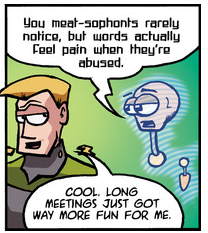Initially, I’d planned to do this post on Ant-Man and the Wasp, which I had the misfortune of watching the other night. I mean, I loathed the original – being one of the three people who didn’t love it, apparently – and I wanted to let loose some. But seeing as no-one wants to read the word ‘wank’ repeated eight thousand times, and the SLD is going to strangle me with my own entrails if I mention the fact that quantum tunnelling doesn’t work like that, and quantum phasing just… it just isn’t! And don’t get me started on the fact that physics still applies if you’re teeny tiny.
If the car is travelling at 60mph, and the wheels suddenly become one one-thousandth of the diameter, the amount of shed thermal energy from friction would have turned every single one of those hot wheels cars into a very small, very brief, hugely inconsequential fire.

And Hank Pym is still the bad guy. They may not have been able to persuade Michael Douglas to play the wife-beating, but he’s still massively the villain of the piece.
I mean, maybe we don’t need M Night Shamayalan to rip off Grant Morrison to tell he’s un-bastard-questionably evil. Notice how Michelle Pfeiffer greeted him with the enthusiasm of an ex who forgot to renew her restraining order?
Sorry. SLD came in and threw a shoe at me. Harsh, but fair. Jesus wept but those films truly boil my piss, though.
Anyway, on to the point. For today, I kinda wanted to talk about sympathy versus empathy in writing, and the hunt for the universal experience.
Empathy is when you see a man who has inexplicably zipped up his fly with a bollock on the outside and say “Ooooh, sair yin. I caught my nut on an industrial grind wheel in a thoroughly not masturbatory experiment.” While you may have more explaining than you had to do at the start of the sentence, you have shared an experience with that poor soul leaping about, grabbing his crotch and weeping.
Sympathy, on the other hand is when you see the swollen veiny bollock stuck through the steel teeth and say “Christ, that looks sore”. You’ve never experienced the crushing agony of the poorly-designed organs (Which always struck me as a particularly compelling argument against ‘intelligent design’. I mean, if you knew that an actual creator, in full control of their faculties, had designed the most sensitive, most delicate, most vital organ in the body, and left it dangling *on the outside* in a flimsy handbag of chicken skin, in front of a forest of jagged bone; ‘intelligent’ would not be the first word to leap to mind) of generation being chafed between serrated steel teeth, but you figure it’s less than pleasant.
Writing is trying to find an experience that is shared or at least relatable by the most people. If I write about pissing standing up, at least half my audience are on the outside looking in. Trying to avoid my splashes. For that matter, the Empathy/Sympathy comparison there was an experience that at least 50% of my audience will struggle to visualise. Well, they might, were my prose not so, ahem, purple (sorry).

So, should a writer aim for experiences that are truly universal? I mean, maximum audience, 2 out of 4, as the cinema marketeers have it. I have a few issues with that. Namely, what the hell is truly universal?
I think the only universal experiences are birth and death. And our memories of one are vague, and rarely buy books after the other. Secondly, the notion of sanding off the edges of personality to create a narrative that truly has something everyone will recognise it the aeroplane movie option.

No, not that one. Movies that get shown on aeroplanes are cut of all content that could possibly offend anyone, because the airline has no idea who might be watching them. As a result, they’re so bland and anodyne as to be borderline unlovable.
Finally, and coming full circle, you have no idea what experiences are universal, and which are just ‘everyone you know has them’. I don’t either. No-one does. Our filter of perception, and thence our empathy, is shaped by who, where, why and even when we are. What we might think of as our shared experience, our empathy to others, is little more than sympathy in a fur coat, and it’s far more dangerous. By convincing ourselves (easily done) we share the pain or joy of a different soul, we know them, we understand them, we are them.
We bloody well aren’t.
But when we think we come at a person, be they person or character, with the assumption that we understand them because we went through something similar, or we share characteristics with them, because we empathise like the good souls we know ourselves to be, we can’t be anything but wrong. From decent writing classes to the Murder Investigation Manual, assumptions are the enemy. And empathy is the most slippery, seductive, trickier-to-shake-than-a-handful-of-hagfish assumption of them all.

To close, I’ll give you an example that damn near floored me. When I wrote Rufus, I had a character, Nikki, who was a Londoner of Carribean roots. She was bolshie, confident, street and walked with that supreme confidence of someone who knew eyes were on her. Now, she’s a working smith who likes her food; all muscle covered in a solid layer of fat.
When I put the book out to beta readers, I was talking afterwards to one of my readers who had liked Nikki especially. She loved her attitude, loved the taking of zero shit and giving of less fucks. In conversation later, I was talking fantasy casting(I know, I know, but everyone does it,) and the recent series of Luther had given me some ideas.
My beta reader was dumbfounded. She’d thought of Nikki as slim, svelte, bordering on the skinny. Because she couldn’t imagine the idea of someone being confident in their own skin, of being proud of how they moved, without there being very little but bone under that skin. She associated thin with confident and sexy. Her assumptions had made her miss almost every physical description.
Took me days to get my head round it. As far as I was concerned, the only thing you need to be confident and sexy was to be confident. The sexy’d follow. But my head wasn’t my beta reader’s head. Hell, her head wasn’t Nikki’s head. But, I think the one thing no writer can reliably predict is what happens when a book unfolds inside the mind of another. All we can do is try and do some good.
